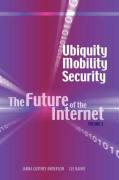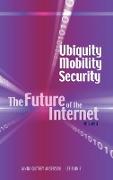- Start
- Ubiquity, Mobility, Security
Ubiquity, Mobility, Security
Angebote / Angebote:
About the series: Technology builders, entrepreneurs, consultants, academicians, and futurists from around the world share their wisdom in The Future of the Internet surveys conducted by the Pew Internet & American Life Project and Elon University. The series of surveys garners smart, detailed assessments of multilayered issues from a variety of voices, ranging from the scientists and engineers who created the first Internet architecture a decade ago to social commentators to technology leaders in corporations, media, government, and higher education. Among the respondents are people affiliated with many of the world's top organizations, including IBM, AOL, Microsoft, Intel, ICANN, the Internet Society, Google, W3C, Internet2, and Oracle, Harvard, MIT, and Yale, and the Federal Communications Commission, FBI, U.S. Census Bureau, Social Security Administration, and U.S. Department of State. They provide significant and telling responses to questions about the future of government, education, media, entertainment, commerce, and more. They foresee continuing conflicts over control of networked communications and the content produced and shared online.
Ubiquity, Mobility, Security: The Future of the Internet, Volume 3: Based on the third canvassing of Internet specialists and analysts by the Pew Internet & American Life Project, this volume showcases the responses of technology stakeholders and critics who were asked to assess scenarios about the future social, political, and economic impact of the Internet. Some 578 leading Internet activists, builders, and commentators responded in this survey to scenarios about the effect of the Internet on social, political, and economic life in the year 2020. An additional 618 stakeholders also participated in the study, for a total of 1, 196 participants who shared their views. The insights garnered in the study included predictions made on the role and importance of mobile devices, the transparency of people and organizations, talk and touch user interfaces with the Internet, the challenges of sharing content while trying to perfect intellectual property law and copyright protection, divisions between work and personal time given the blurring of physical and virtual reality, and the "next-generation" engineering of the network to improve the current Internet structure.
Folgt in ca. 15 Arbeitstagen

